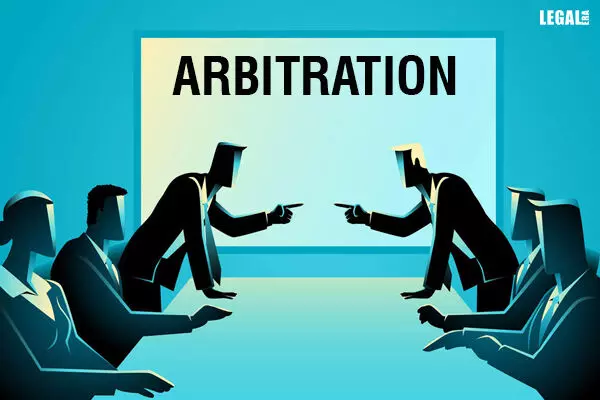- Home
- News
- Articles+
- Aerospace
- Artificial Intelligence
- Agriculture
- Alternate Dispute Resolution
- Arbitration & Mediation
- Banking and Finance
- Bankruptcy
- Book Review
- Bribery & Corruption
- Commercial Litigation
- Competition Law
- Conference Reports
- Consumer Products
- Contract
- Corporate Governance
- Corporate Law
- Covid-19
- Cryptocurrency
- Cybersecurity
- Data Protection
- Defence
- Digital Economy
- E-commerce
- Employment Law
- Energy and Natural Resources
- Entertainment and Sports Law
- Environmental Law
- Environmental, Social, and Governance
- Foreign Direct Investment
- Food and Beverage
- Gaming
- Health Care
- IBC Diaries
- In Focus
- Inclusion & Diversity
- Insurance Law
- Intellectual Property
- International Law
- IP & Tech Era
- Know the Law
- Labour Laws
- Law & Policy and Regulation
- Litigation
- Litigation Funding
- Manufacturing
- Mergers & Acquisitions
- NFTs
- Privacy
- Private Equity
- Project Finance
- Real Estate
- Risk and Compliance
- Student Corner
- Take On Board
- Tax
- Technology Media and Telecom
- Tributes
- Viewpoint
- Zoom In
- Law Firms
- In-House
- Rankings
- E-Magazine
- Legal Era TV
- Events
- Middle East
- Africa
- News
- Articles
- Aerospace
- Artificial Intelligence
- Agriculture
- Alternate Dispute Resolution
- Arbitration & Mediation
- Banking and Finance
- Bankruptcy
- Book Review
- Bribery & Corruption
- Commercial Litigation
- Competition Law
- Conference Reports
- Consumer Products
- Contract
- Corporate Governance
- Corporate Law
- Covid-19
- Cryptocurrency
- Cybersecurity
- Data Protection
- Defence
- Digital Economy
- E-commerce
- Employment Law
- Energy and Natural Resources
- Entertainment and Sports Law
- Environmental Law
- Environmental, Social, and Governance
- Foreign Direct Investment
- Food and Beverage
- Gaming
- Health Care
- IBC Diaries
- In Focus
- Inclusion & Diversity
- Insurance Law
- Intellectual Property
- International Law
- IP & Tech Era
- Know the Law
- Labour Laws
- Law & Policy and Regulation
- Litigation
- Litigation Funding
- Manufacturing
- Mergers & Acquisitions
- NFTs
- Privacy
- Private Equity
- Project Finance
- Real Estate
- Risk and Compliance
- Student Corner
- Take On Board
- Tax
- Technology Media and Telecom
- Tributes
- Viewpoint
- Zoom In
- Law Firms
- In-House
- Rankings
- E-Magazine
- Legal Era TV
- Events
- Middle East
- Africa
Delhi High Court Allows Extension Requests Post-Mandate Expiry Under Section 29A Of Arbitration Act

Delhi High Court Allows Extension Requests Post-Mandate Expiry Under Section 29A Of Arbitration Act
Justice Dinesh Kumar Sharma, of the Delhi High Court, ruled that Section 29A of the Arbitration and Conciliation Act, 1996, does not prohibit the consideration of requests for extending the arbitrator's authority, even if filed after the expiration of the mandate.
The Delhi High Court heard a case where the petitioner sought a one-year extension of the Arbitral Tribunal's mandate under Section 29A of the Arbitration and Conciliation Act, 1996. According to the petitioner, the mandate expired on February 29, 2024. However, the respondent opposed the extension, arguing that once the mandate expires, it cannot be prolonged, especially when the request for extension is made after expiration.
The respondent claimed that the petitioner's behavior during the arbitration, which began on November 23, 2021, significantly delayed the proceedings. Despite 27 months having passed, the arbitration is still pending. The respondent pointed out that the pleadings were completed on June 22, 2022, and as per Section 29A of the Arbitration Act, the initial 12-month period expired on June 21, 2023. It contended that due to the delays caused by the petitioner, it was impractical to conclude the arbitration process by February 29, 2024.
The High Court, citing its ruling in KMP Expressways Limited v. IDBI Bank Limited, clarified that Section 29A of the Arbitration and Conciliation Act, 1996, does not prohibit the consideration of extension applications submitted after the mandate's expiration. Emphasizing the legislative intent behind Section 29A, the court noted its discretion to grant extensions even post-expiration. It distinguished its stance from the Calcutta High Court's ruling in Rohan Builders (India) Pvt. Ltd. v. Berger Paints India Limited, affirming that Section 29A doesn't impose strict outer limits.
Acknowledging the nearly two and a half years of ongoing arbitration proceedings with delays attributed to the petitioner, the High Court emphasized the need to avoid further prolongation and urged the arbitrator to expedite proceedings. Consequently, the High Court extended the Arbitral Tribunal's mandate until December 31, 2024.



